#governmental law
Text
“The nation of Manchukuo was theoretically founded on a complex and fairly contradictory mix of principles, leaving the role of law in the new society somewhat unclear. At its most basic level, the creation of an independent Manchukuo was represented as a triumph of popular sovereignty, the “unanimous will of the thirty million people of Manchuria and Mongolia,” a portrayal that fit well with Wilsonian ideals of democratic self-determination. For many, such claims rang hollow even at the outset and appeared to be aimed largely at convincing Western powers of the legitimacy of the new state. But they do imply a degree of affinity for the dressings, if not the genuine ideals of liberal government, of which the rule of law under a free and independent judiciary would be paramount.
At the same time, even if the foundation of Manchukuo theoretically represented an act of popular will, it was still very much a created society. Japanese superiority was never in doubt. The rhetoric of statehood aside, the paternalistic attitude that Japan took toward nominally independent Manchukuo made it difficult to distinguish from a colony. This was not simply a matter of Japanese duplicity; many of the Chinese intellectuals who would take up positions in the Manchukuo government had openly argued that China would benefit from a period of foreign stewardship. As was the case in Taiwan and Korea, the institution and reform of law in Manchukuo was part of a package of civilizing methods imposed from above and from without, constructing a society while protecting a privileged place for Japanese citizens and interests therein.
Tension between these ideals was further complicated by the rhetoric of what made Manchukuo unique. In its own propaganda, Manchukuo was not merely independent. It was a radically new and uniquely Asian form of polity, an incarnation of Japanese spiritualism taking root in a multi-ethnic state, and thus, even more than Japan itself, an exemplar for the political future of pan-Asianism. What role should law play in a country ruled by this unlikely mix of Asian morality and hyper-modernism, legitimized in terms of Western liberalism, yet openly disdainful of it?
Given the somewhat schizophrenic ideals officially espoused in its founding, it is not surprising to see law in Manchukuo represented in a number of strikingly different ways. Manchukuo was established amid a heavy dose of legal rhetoric, and some of the first acts taken after its founding were legal in nature. These included an appeal to the principles of international law to assure the legitimacy of the new state and promises to create a legal system in order to “protect the livelihood of the people, and increase their wealth and stability.” At the core of this new system, the 1932 Organic Law (Law of the Organization of the State of Manchukuo, Manshu koku no seiji soshiki ho) outlined the structure of government and included a twelve-part Human Rights Protection Law. On its face, the government structure appeared designed to balance power between legislative bodies and the executive branch. To ensure the independence of the courts, the judiciary was to be a distinct branch of government, judges were appointed for life, and all judicial organs were financially under the central government so as to avoid the corruption that had supposedly characterized the previous justice system.
Despite the appearance of balance within the government, the entire state structure rested on the foundation of an external, spiritualist authority. Even if the state was founded on the principles of popular will, it did not serve this will through elected representation, but rather through a spiritual bond between the state and people known as the “Kingly Way” (wangdao). The theory of the Kingly Way was largely the personal project of Zheng Xiaoxu (1860–1938), a former official of the Qing empire, constant companion of the deposed emperor Pu Yi during the 1920s, and first prime minister of Manchukuo. It represented an attempt to meld the rhetoric of Confucian moral governance with the machinery of a modern state, thus creating the foundation of a new Asian polity. In all of its public pronouncements, the new state emphasized this spiritual core, voiced alternately as the Kingly Way or later as the equally vague “spirit of national foundation” (jianguo jingshen). The short declaration establishing the government of Manchukuo, uttered by the titular head of state (although not yet emperor) Pu Yi on March 9, 1932, is typical of the moral rhetoric of Manchukuo:
Humankind must value morality. Yet there is a difference between races—in which some control others while praising themselves. Such morality is very thin. Humankind must value benevolence and love. Yet there is war between nations—in which people seek to profit from other’s loss. Such benevolence and love is very thin. Our Nation has been founded on morality, benevolence and love. When racial difference and international war have been eradicated, we will see the establishment of a true paradise of the Kingly Way. The citizens of Our Nation must devote themselves to this task.
Such statements are interesting not only for their somewhat saccharine portrayal of the new state, but equally so for what they do not mention. While these pronouncements emphasize the spiritual renaissance of the Kingly Way, they generally lack reference to law, procedure, or efficiency. Even those portrayals, such as the Declaration of Manchukuo Statehood (Manshu koku kenkoku sengen), that justify the creation of the new state in terms of popular welfare, criticizing the old regime as incompetent, corrupt, and thus unable to protect the people against the twin evils of Communism and banditry, do not speak of the new state in terms of the restoration of law and order as much as this new, moral attitude toward governance.
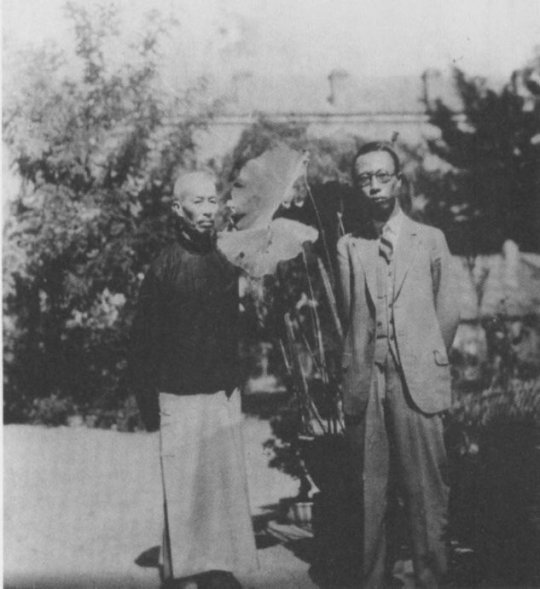
Above: Zheng Xiaoxu and Puyi in the 1930s
This is not to say that the new state was hostile to law, but rather that law was portrayed as an expression of the same spontaneous sentiment that had created independent Manchukuo. As such, law was depicted as consensual, an expression of values and purpose held in common by state and citizens. Despite its name, the Human Rights Protection Law clearly subjected individual interests to the needs of state. There was no question of this or any other law serving to safeguard the rights of individuals against the state, the idea of any such antagonism being viewed as a leftover of individualistic bourgeois liberalism. In Manchukuo, this was portrayed as Asian consensus culture reasserting itself against selfish Westernism. But the claim that “the people” are of one mind with the government and its institutions are common to totalitarian states.
The rhetoric of morality permeated official discourse in Manchukuo, and within it, law was treated primarily as a practical measure. Although many schools of Chinese philosophy had traditionally disdained law as corrosive of public morality, in Manchukuo it was invoked as a means to attaining the moral ends of good governance. However, even if the balanced structure of the Manchukuo government was put into place in order to maintain oversight of “government morality” (seiji dotoku), the nature of this moral end was often left unclear. Occasionally it was represented in terms of economic good. The Human Rights Protection Law itself includes the commitment of the government to protect citizens against usurious interest rates, or any other form of “improper economic oppression.” However, hostility to anything resembling Sun Yat-sen’s political doctrine of the “Three Peoples’ Principles” (which included a provision for “Peoples’ Livelihood”) and an intense paranoia over the advance of Communism ensured that this type of economic rhetoric would always remain somewhat muted.
More often it was represented in terms of the spiritual and moral destiny of the state, and later of the Japanese Empire. Through the rhetoric of the Kingly Way, the emperor was held up as the concrete expression of the spiritual foundation of the new state from which all political and moral authority proceeded. Closing a long essay on the history of Manchuria, Japanese army captain Okada Meitaro waxed poetic about how under the guidance of the emperor, the ruler and people were one (kunmin ikka). Interpreting this often-repeated formulation to include the state would not be precisely accurate. The spiritual bond was that between the people and the emperor himself; the state and its institutions were necessary only as they were practical. The law itself was not inviolable because, according to the somewhat vexing logic of one source, “from the legal standpoint, the Emperor is the source of all authority.” While the rhetoric of imperial divinity would take on a much greater significance during the 1940s, even in this earlier period, the division between the emperor and government mirrored that between the moral basis of the state and its everyday procedural concerns. At a fundamental level, the law of Manchukuo was a celebration of this same consensus, a concrete expression of social harmony and universally held values, and only secondarily a tool of practical governance.
At the same time, the appeal to law was important for legitimating Manchukuo in the eyes of the outside world. In a general sense, possession of a modern legal code was held up as a hallmark of an advanced civilization, a designation that Japan itself had worked long and hard to attain. Over the previous decades, attention to international criticism had motivated not only the revision of criminal procedure inside Japan, but also the laborious attempt made to justify events such as the annexation of Korea not simply by force of arms, but within the letter of international law.
The most prized mark of Japan’s entry into the family of “civilized nations,” and the standard for which they fought tirelessly in Manchukuo, was revision of extraterritoriality. This provision was introduced by many Western powers in their treaties with China and Japan (and later by Japan in China and Korea) and allowed the former to try its own citizens for offenses committed within the territory of the latter, on the grounds that Asian judicial systems were excessively violent and unreliable. For western-oriented reformers in Meiji Japan, such a characterization had been particularly grating, and with the help of European advisors, Japan had managed to reform its code to secure abrogation of extraterritoriality by the late nineteenth century. It now faced a similar battle in Manchukuo by virtue of preexisting treaty obligations on what had previously been Chinese soil.
However, the decision for Manchukuo to honor extraterritoriality clauses in existing treaties was made voluntarily by Japan. It was motivated by two considerations, the desire to court Western approval for the new state and, more fundamentally, the need to maintain the special rights enjoyed by Japanese commercial interests (particularly in the semi-colonial territories administered by the South Manchuria Railway) and citizens until a judicial system tailored to Japan’s liking had been established. As such, the road to ending extraterritoriality turned around two somewhat contradictory principles: the manipulation of the Manchukuo judicial system to enshrine special rights for Japan and the courting of other extraterritorial powers (all Western) to recognize these changes as reforms and voluntarily surrender their own rights.
The high profile of this emotional issue is seen in the amount of attention it received in legal circles in Manchukuo and Japan. In December 1933, a joint conference of thirty-six Japanese and native officials of Manchukuo convened in the city of Fengtian to discuss the legal basis of Japanese abrogation of extraterritoriality. This was followed by a series of similar meetings in 1934 and 1935. Nor was the attention to this question restricted to Manchukuo; these meetings were widely publicized within Japan, in no small part to mollify fears among domestic investors and settlers over a potential loss of Japanese privileges in Manchuria.
In an allied effort, the new government immediately began taking steps to promulgate a constitution. Diplomats observing the new state had expected such a step to be taken immediately and, through 1936, were promised the immanent release of a Manchukuo constitution. They were somewhat mollified by the promulgation of the Organic Law in 1932, which was then revised in 1934 to reflect the accession of Pu Yi to emperor. The delay in promulgating the actual constitution was a surprise to observers, many of whom were already convinced that this would be nothing more than a cosmetic document, imposed by Japan with little debate or controversy.
Yet controversy there was, because the constitution of Manchukuo could potentially establish precedents that would influence the entire empire, including Japan itself. Although legal scholar Mitani Takeshi characterized the Manchukuo Constitution as an imperfect copy of the 1889 Meiji Constitution, the structure of government outlined in the 1932 Law of the Organization of the State of Manchukuo was in fact adapted largely from the Republic of China. This was primarily to ensure a smooth transition between the two governments, but also because Chinese and Japanese jurists and jurisprudence were already quite close. Indeed, the Chinese government structure and legal codes as they appeared in the 1930s had themselves been very heavily influenced by Japanese advisors a generation earlier.
Nevertheless, small but revealing differences separated Manchukuo from both China and Japan. Like that of the Republic of China, the government of Manchukuo was divided into Legislative, Judicial, Cabinet and Oversight Yuan, the latter omitting the Examination Yuan. Other differences were more fundamental. While the both the Chinese Legislative Yuan and the Japanese Imperial Diet had the power to propose, pass, and veto laws, the Legislative Yuan of Manchukuo was restricted to assisting (yokusan) in this function. The Manchukuo Legislative Yuan did have the power to reject laws, but this rejection was not binding and could easily be overturned. In theory, this was because the Manchukuo legislature was not an expression of popular will, but rather of imperial benevolence, and served at the convenience of the emperor. According to Mitani, it also reflected the image that some had for the future of Japan, with power centralized at the expense of a severely weakened Imperial Diet. Given its lack of any real power, it was very difficult to find recruits for this body; British consular reports paint a rather sad picture of the 1934 Manchukuo legislature as thirty-nine “more or less reluctant nominees of Japan.”
- Thomas David Dubois, “Rule of Law in a Brave New Empire: Legal Rhetoric and Practice in Manchukuo,” Law and History Review Summer 2008, Vol. 26, No. 2: p. 291-298.
#manchukuo#manchuria#state of manchuria#滿洲國#ᠮᠠᠨᠵᡠ ᡤᡠᡵᡠᠨ#legal code#empire of law#history of crime and punishment#constitutional government#puyi#governmental law#chinese history#empire of japan#jurisprudence#academic quote
0 notes
Text
gently amused by the people in my notes talking about US states having their own governments as if thats some uniquely american thing. bro i literally live in a constituent country. and half of the time i dont even know what that means /lh
#but yeah nah a lot of countries have autonomous reigons and governmental bodies that can lead to laws and customs changing between em#hearing that the experience changes wildly between US states is like. yeah man thats how big countries be.
59 notes
·
View notes
Text
hey babe, wake up, new reason to abolish the police force just dropped
#imagine being a peaceful protester in a space you PAY to have the right to access and the police force deciding to literally attack you.#imagine having no weapons and law enforcement decides that your words are too dangerous and so they physically beat you#NYPD and Columbia University are rotten to the core. why is saying ‘genocide is bad’ so scary to these people#why have they sacrificed their humanity for money and public image and power#no political agenda is worth children and innocent people dying#what’s happening at Columbia and UCLA to the pro-Palestinian protesters sickens me#because apparently neo-nazis and white supremacists are simply exercising their right to free speech#but a student questioning the government is the source of all evil in the world and must be stopped#I’ve been an abolitionist and I will STAY an abolitionist but sometimes it still shocks me how terrible our governmental systems can be#free palestine#don’t stop talking about palestine#from the river to the sea palestine will be free#genocide is never ok. the fact that that isn’t something that can go unsaid is abhorrent
9 notes
·
View notes
Text
Still thinking about that post that begins, "Mothers and Fuckers of the jury" because I can't help but picture some younger Arkham rogue saying that in one of their (numerous) mock court proceedings, only for both sides of Harvey to give the biggest, most beleaguered sigh of all time.
#harvey dent#two face#this men are tired#this may not be governmentally official#but this is a court of law#and you will show some fucking respect
2 notes
·
View notes
Text
it should be legal for me to brutally murder orthodox christian priests. because I deserve it and they suck
#ahaaaaa the church pushing anti-abortion initiatives and laws for years now because of the religion in a country that doesn't have an#official governmental religion#ahaaaa hate commies but they should have burned more churches and prosecuted more people for religious beliefs
3 notes
·
View notes
Text
Bad terrible things happening in my state all the time I hate it here
#sigh#if it’s not terrible laws against queer people it’s terrible laws against. checks notes. anyone who wants to use social media?#siiiiiggghhh#to the void#sunnfish.jrnl#but also don’t want to hate it here. lived here my whole life wish it wasn’t terrible at a governmental level
4 notes
·
View notes
Text
hi. why is nobody talking about the porn ban in north carolina? the PAVE act is a bill that was passed back in september 2023 (came into law january 1st 2024) that effectively bans users from viewing websites hosting adult content without age verification. (link to the bill)
"-the act legally requires commercial ventures to verify users’ ages if a company “knowingly and intentionally publishes or distributes material harmful to minors on the internet from a website that contains a substantial portion of such material.”
In order to do so, North Carolina requires these sites to either use “a commercially available database that is regularly used by businesses or governmental entities for the purpose of age and identity verification,” or utilize “another commercially reasonable method of age and identity verification.” Companies are not allowed to hold records on any personally identifying information used to confirm users’ ages.
Additionally, North Carolina offers residents the right to a lawsuit if a site is found to record user identifying information, or if a minor’s parent or guardian finds that a website allowed their child to access a site purposefully hosting material “harmful to minors.”"
obviously we don't want these websites having our IDs, but sites like e621 and pornhub just straight up aren't asking for them either- blocking their service to the state in it's entirety instead.
even beyond the restriction of adult websites, obviously as the 'queerest place on the net' we can see how "material that is harmful to minors" is not just intentional vague wording, but a massive red flag.
even if you dont care about the porn- which you should, this is a massive rights violation. how long until 'harmful material' is expanded to include transgender people? same-sex relationships? anything lgbtq? this is a serious fucking problem and it opens the door to hundreds of potentially worse bills that extrapolate on the same concept.
i have no idea what to do to fight it, but if someone smarter than me could add links to representatives or something, that would be awesome.
i'm also going to tag a few people to get this post out:
@polyamorouspunk @safety-pin-punk @doggirlbreasts (i have no idea who else to tag, if any of you can think of someone who can help this post get out there, please tag them!)
4K notes
·
View notes
Text
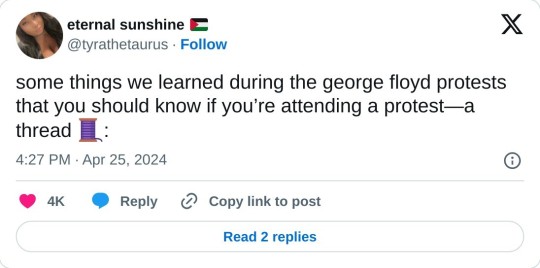
as an american citizen, you have the right to assemble. the police and other governmental agencies violate this right through mass arrests, illegal use of force, criminalization of protest and other means that threaten our right to free expression.
DO NOT TALK TO THE POLICE:
they are not your friends. they are not there to protect you, regardless of your race. their presence there is to protect the interests of the state.
what to do if you are detained or stopped by the police:
do not resist, even if you think they are violating your rights.
calmly ask someone to record.
ask if you’re free to leave. if you are, walk away.
how to stay safe during a protest:
write phone/legal aid numbers on your body. bring a sharpie for others to do this.
ALWAYS use the buddy system. don’t be selfish & stick to your own friend group. if you see someone alone, invite them into your circle.
don’t know where to seek legal aid?
before attending/during a protest, visit http://nlg.org/chapters/#massdefense.
NLG chapters are organized into regions. find. your region and write their number on your body.
encourage others around you to write that same number on their body.
4. if you are threatened with or under arrest:
you have the right to know why you’re being arrested. calmly ask. if they refuse to provide a reason, stay quiet and ask for legal representation immediately.
do not give any information or sign anything without a lawyer present.
what to do with your phone during a protest:
put your phone on airplane mode
disable face ID/touch, replace with 6-digit passcode instead
spreading awareness is great but avoid posting photos of people that include identifying features.
police want everyone to leave the area, what should that look like:
shutting down a protect through a dispersal order must be the last resort for police.
a clear danger must be present.
police must give adequate time for protesters to disperse and an exit route.
what are your rights if you’re being stopped or detained by police:
you do not have to consent to you or your belongings being searched. if you consent, anything can be used against you in court.
police can conduct a “pat down” if they suspect you have a weapon.
if you see someone being detained, what should you do:
record the interaction. police can not demand to view or delete any footage without a warrant.
use calming affirmations towards the person being detained. they are likely scared. be there for them.
use whatever privilege you have to protect others.
if you see a disabled person struggling, offer to help. find medics to assist people experiencing anxiety or having a panic attack. if you see a BIPOC being harassed, surround them.
personal note on using your privilege: i have seen white people, countless times, place themselves in front of BIPOC when police draw weapons/approach protests. it often works.
do not be a person that just acknowledges their privilege, use it for good.
10. remember that we protect us. ignite this chant as a reminder to everyone present if you have to. communities are supposed to help one another. don’t be a sell out, offer support, share resources, food and water. be a kind soul.
if you can not participate in a protest for whatever reason, you can still help! drop-off supplies! (water bottles, allergy-friendly foods/snacks with ingredients labels on them, sharpies, cards with legal aid numbers on them, masks, makeup remover wipes, hand sanitizer, etc)
sources/disclaimer: main source:
@ACLU and my own opinions. this is not legal advice. consult legal representation if you are in need of assistance.
stay safe, be on the right side of history. black lives matter, no one is illegal, we protect us, land back, all oppression is connected and free palestine. 🇵🇸
1K notes
·
View notes
Text
The practice of those in power “protecting” Jews in this dubious way is not a modern phenomenon. What we are seeing play out in Congress today recalls the medieval status of Jews in Christendom as servi camerae regis, “servants of the royal chamber,” under the special protection of the king. Royal power exploited Jews economically while using them as a buffer against both nobles and the lower classes. Eventually, the kings always sacrificed their pawns: England’s King John proclaimed in 1201 that the Jews were “like our own private thing,” but his successor Edward I expelled them all in 1290 to ease the passage of a tax.
One can easily see this playing out yet again should the COLUMBIA Act become law. As the “antisemitism monitors” systematically assault critical race theory or diversity, equity and inclusion or whatever other demons the GOP invents, non-Jewish students and faculty will inevitably see Jews as beneficiaries of special government protection that they themselves are denied. Jews, drawn ever more tightly into alliance with power, will be unable to forge alliances with other marginalized groups. This will actually strengthen antisemitism because antisemites always claim that Jews deviously accrue illicit power and privilege.
That those in power have selectively decided that only pro-Israel Jews are worth protecting lays bare the disingenuous motives behind their actions. For American Jews, regardless of where you stand on Israel,* supporting these governmental actions is a devil’s bargain that can only hurt our communities in the long run.”
*all i will add is that its very apparent that abandoning zionism completely is the only way forward if we want to have any hope
767 notes
·
View notes
Text
WorldBuilding Ask Game
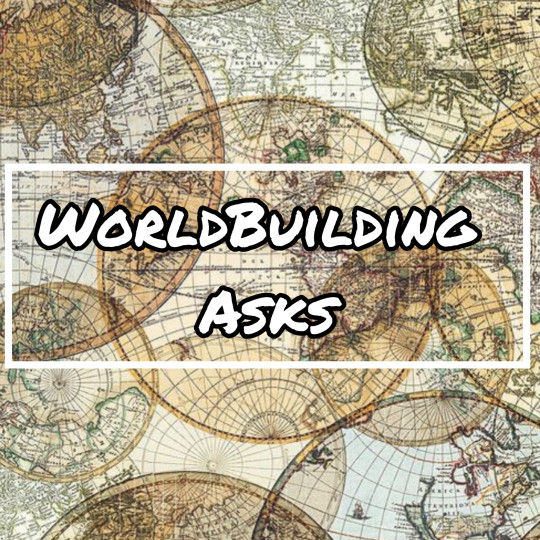
Here is a little ask game for WorldBuilding in your WIP to pad out one country or all of them! Use it for yourself or ask a friend and spread some love. Focus on a particular section and have fun!
Geography
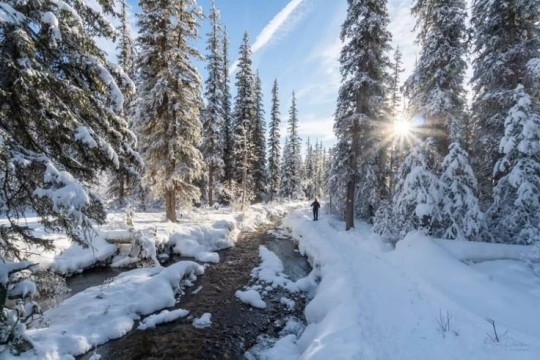
What does your world look like? What's the biome? Are there different ones?
Are there any oceans? If so, are they accessible? Are they a reliable source of travel and food?
Are there any rivers in your world? Any lakes? What's the longest river? Deepest lake?
Is there a safe supply of drinking water? If not, why not?
Are there mountains in your world? What's the highest one?
What is the weather like? How does this effect life?
What animals inhabit the world? What animals are indigenous or considered exotic?
What are some natural features your world is famous for? Is your world considered beautiful?
How many countries in your world?
How are countries divided? By natural lines or by agreements?
Population

What's the population like? Is it large or sparse?
Is there any factors in population density? Do more people live in a certain area more than elsewhere? Why is that?
Are there different peoples living in your world? If so, how do they get on?
How important is nationality? Are foreigners tolerated? Or are they unwelcome?
What countries get on? What countries hate one another?
Are there any important cities? Why are they important?
What's the architecture like? Are there any outside influences?
What's a typical building material? What's considered an expensive feature to include?
What is infrastructure like? Are roads and railways in good condition?
Is there public transport? Is it reliable?
Government
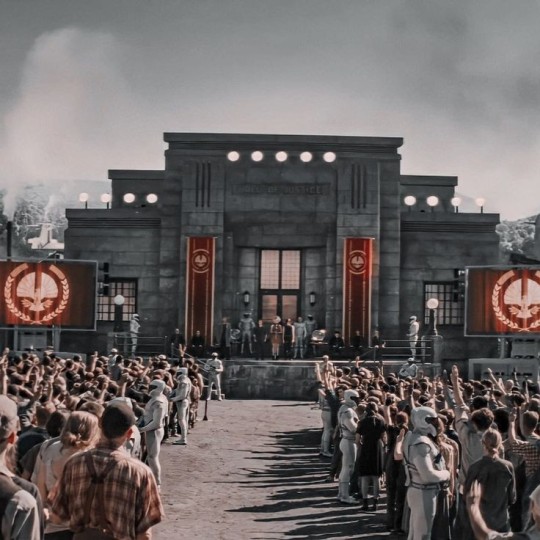
What system of government does your world adhere to? Is it popular?
Where is the seat of government?
Are there different governmental agencies?
Are there political parties? If so, what are their goals?
How much control does the government have over the average person?
Can your people vote? If not, why not? If so, who has/hasn't the right to?
Are there any parties or organisations that oppose the government?
How does the government crack down on sedition?
Are people allowed to criticise the government? If so, how? If not, how do they get around it?
How are laws made? Who makes them?
Is there any odd laws in your world?
What are some punishments to crime? Are they considered fair?
What crimes are unfathomable for the people?
Who handles justice? Is justice obtainable for all?
Are there any police? What's their reputation?
What role does the military play in your world?
Who controls the army? Head of state or government as a whole?
Is it considered a good career path?
Who can join the army? Are there any restrictions?
What is your world's stance on war? Are there any neutral parties? Or particularly warlike ones?
Commerce and Trade
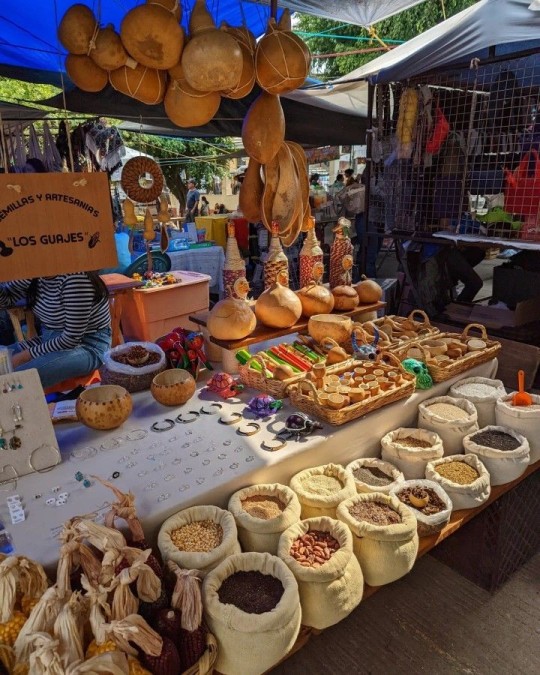
How is trade done?
Is currency universal or dictated by region?
How is your economy going? What effects it?
What trade is your world known for?
What are some exports? What must your world import?
Are any goods considered luxurious?
What services are available in your world? What services are niche?
What sort of work is common? Is work readily available?
Who is expected to work?
Are workers treated fairly or unfairly?
Are there any ways workers are protected? If not, what are some consequences?
Is your world more reliant on technology or on labour?
Is agriculture possible in your world? If so what can your people grow?
How big is industry? What goods can your people make?
What resources can your country exploit?
What are some barriers to trade and commerce?
Is your nation known for quality? Or Quantity?
Who does your country trade with most often? Who do they boycott?
Are there any major ports in your country?
Are there any banned goods? If so, is there a black market for their purchase?
Society
How society expect one to behave in public? Are there different expectations for different people/genders/ranks?
Is there a social order? Can one move up the ranks?
Is there any considerations made on account of rank, gender, age or position?
What is considered a social faux pas?
Are there any gestures or actions that are considered rude or socially unforgivable?
What would utterly shock somebody to see somebody do?
What are some opinions that are normal for your world but can be considered subversive in real life?
How can one rise up the status ladder? Is there much trouble to do so?
What denotes a person's place in society?
How is life different in cities compared to life in the countryside?
Daily life
Where would someone go to buy their weekly shop? Is food easy to come by?
What would be the daily routine of the wealthy? The common man?
How is hygiene handled in your world? Where does one go to spruce up?
What would be some day to day tasks one might face?
What is the favoured means of travel?
Are there any problems in your world that could effect a daily routine? Potholes? Gigantic spiders? Acid rain?
What ammenties would an average person expect to have access to?
Where would one go if they are injured or ill? What's healthcare like?
Do people feel safe where they live? Are there any places somebody might face danger?
How do people communicate? Is it difficult? Why?
What do people do for fun? What's considered normal fun versus hedonistic?
What pastimes are common? What kind aren't?
Is education valued?
Is there access to education? If so, for who?
Are the population educated? If so to what extent?
Family Life
What is the typical family set up?
Is extended family important?
Who can be considered family? Who can't be?
Is marriage considered a duty? Or is it more of a personal choice?
Is divorce possible?
Can people adopt children?
What happens to orphaned children?
Are children important? If not, why not? If so, why?
What are some typical toys children play with?
What are some games children play with one another?
How is in charge of household chores?
Is there a hierarchy in families?
Are children expected to take on certain roles?
What is the living situation like between the different ranks? Are the roles different?
What's considered the proper way to raise a child?
Culture and Languages
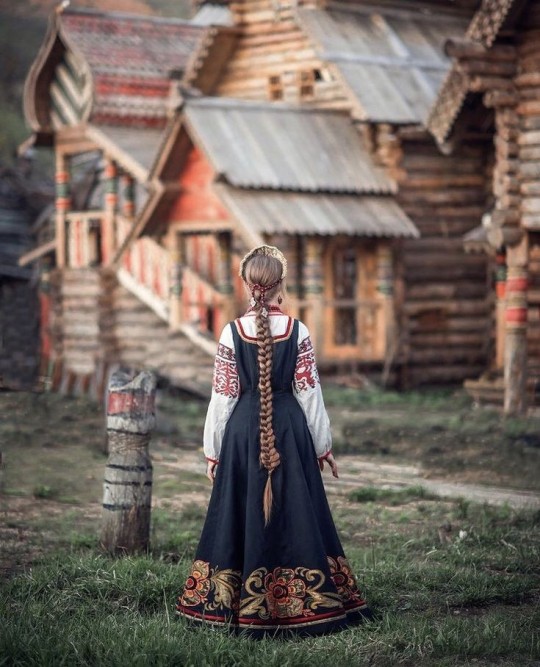
Are there multiple cultures in your world? How do they differ? Do they mesh well together?
How are cultures similar? How are they different?
Are there any traditions in your world? How important is tradition?
What are some rituals your culture undertakes?
Are there any special days? Events?
What are some traditional values in your world? Does it effect daily life?
Are there traditional clothes for your world? Are they something somebody wears on a daily basis or just on occasion?
Are there any rules around what people can wear?
What would be considered formal dress? Casual dress?
What would happen if somebody wore the wrong clothes to an event?
What languages are spoken in your world? If so, how do they sound?
Are there any dialects? If so, how do they sound?
Are most people monolingual? Or bilingual? Or multilingual?
Are there any languages that are closely related?
What is considered a universal language?
Religion
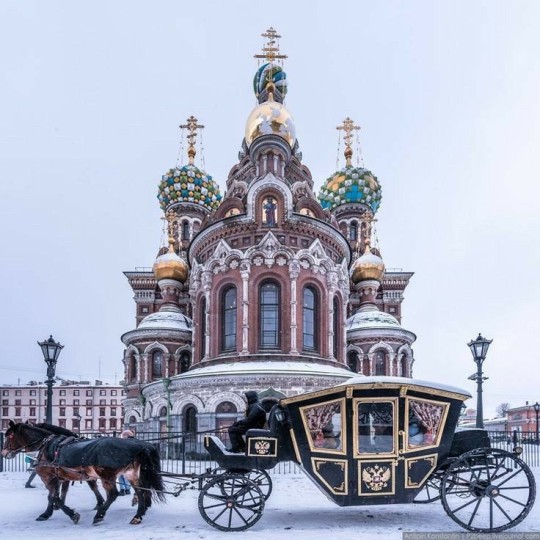
Is religion a thing in your world?
Is religion a staple of life or just a small part?
Does religion affect politics, personal lives and affiliations?
Is your world sectarian? Or ruled by religion?
What are some influences religion has on daily life?
What sort of religion is it? Monotheistic? Polytheistic?
What are some myths your people believe in?
What common rituals does one undertake on a day to day basis?
How does one please a deity?
Where do your people pray? How do they?
What symbols would denote a follower of a certain belief system to a stranger?
What places or objects are considered sacred?
Are there religious orders? If so, who can join?
Is there tolerance or violence over religion? If so, between which faiths?
Food and Drink

What are some traditional dishes in your world?
What would be a basic diet for the common man?
What's considered a delicacy?
Is there a societal difference in diet? What are the factors that effect diet between classes?
Is there any influence from other cuisines? If not, why not? If so, to what extent?
What would a typical breakfast contain?
What would lunch be?
What would be a typical dinner?
What meals are served during the day?
What's considered a comfort food or drink?
Are there any restrictions on who can eat what or when?
Are there any banned foods?
What stance does your world take on alcohol? Is it legal? Can anybody consume it?
Are there any dining customs? Are traditions?
Is there a difference in formal meals or casual meals? If so, what's involved?
Are there any gestures or actions unacceptable at the dinner table?
How are guests treated at meals? If they are given deference, how so?
Are there certain rules about how one can prepare food?
Are there any restrictions on eating with certain people?
How is food generally prepared by?
History
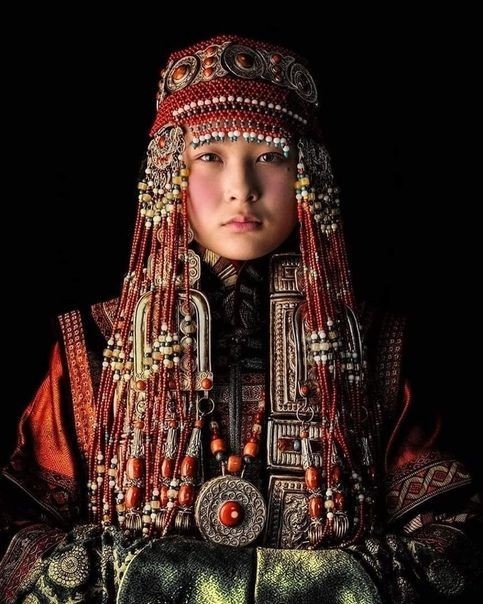
Who are some notable figures from history?
Who founded the country?
Is history looked back on with fondness? Or do your people rather forget?
Are there any heroes in history? Any villains?
What are some highpoints in the history of your land?
What are some points of history nobody likes to speak about?
Does history effect your land, people, culture, language in the present? If so in what ways?
What historic monuments are still around in the present day? What has been lost?
How do people learn about history? Do they learn the truth? Or just an abridged version?
What's a historical event that is important to the story?
#WorldBuilding Ask Game#WorldBuilding list#WorldBuilding reference#WorldBuilding research#WorldBuilding resource#WorldBuilding#writing#writeblr#writing resources#writing reference#writing advice#writers#Writing resources writing reference#Writing reference writing resources#Ask game#Writeblr ask game#writers on tumblr#spilled ink
1K notes
·
View notes
Text
UK Politics Rundown: BoJo's Bizarre Exit Edition
Ok, so, people keep asking me to explain what's going on in the UK right now, mostly because they're seeing Brits just revelling in the levels of fuckery going on. So, a brief bullet pointed run down:
Most of you have probably heard of the Sentient Mop that is Boris Johnson, former Prime Minister of the UK
Most of you probably know about his penchant for lying to the public and basically not giving a fuck about it
This culminated in a huge police investigation into literal parties this man held while we were in Covid lockdown. Including one the night before Prince Phillip's funeral at which the Queen sat alone. And if you know how the press reacted to that one, you know he was in the shit for it.
Anyway, he lied about many of those parties, got fined for attending those parties, and is still technically under Parliamentary investigation for lying to Parliament while stood on the floor of the House of Commons (the room where they yell about laws every day).
There was also a Vote of No Confidence, which is a way in which the Conservatives can remove the leader of their party if they think he's terrible. Boris won this, but by a smaller margin than he would have wanted. No new vote can be held for another year based on the current rules (more on this later)
Fast forward 2 weeks from the end of that to last week and we get some news about an MP (Chris Pincher) who initially seemed to have got drunk and done *something* (as yet it was undefined) and he was suspended from the Conservative party pending investigation.
The following day (Thursday) it emerged that it was because he had allegedly sexually assaulted two men while drunk at a Conservatives club, and that there had been reports of this behaviour before. So he had the whip (basically the ability to vote as a Conservative MP) removed.
On Friday tons of Conservatives did the rounds on the news with 'oh we didn't know he was Bad. Boris definitely didn't know or he wouldn't have appointed him to his position'
On Saturday Boris does an interview where the reporter challenges him and says 'you were told about this in December 2019), Boris then admits to knowing about it but says he 'forgot'.
People are piiiiiiiiiiiised
Fast forward to Tuesday this week (5th July 2022). Late Tuesday, two Cabinet Ministers (think of like the Secretary of State/Housing etc in the US, it's roughly equivalent) Rishi Sunak (Chancellor of the Exchequer) and Sajid Javid (Health Secretary) resign, citing Boris lying to them about many things but this being the final straw.
I mean sure lads, everything else was terrible but this is what did it huh?
Don't worry about it. Their resignations were designed to do exactly what's happened so it was a calculated move.
This kicks off what you've seen in the last 48hrs, with Cabinet Ministers, Senior Ministers, and Junior Ministers all resigning. At one point it was 6 resignations an hour.
The previous record for most ministers in a 24hr period resigning was 11 in 1932. Boris did 53.
Current total of resignations is 59. He fired Michael Gove (who's been hired and fired by the last 3 Prime Ministers, so congrats on that achievement Michael!) So it's basically at 60.
There are not enough ministers in jobs currently to run most departments
Press didn't know what to do with themselves and everyone in the UK was on Facebook marking themselves as 'attending' Boris' leaving party, and generally just having a great time with governmental collapse
Yesterday Boris refused to go. You may have seen footage of the entire House of Commons telling him goodbye very sarcastically. This is the normal levels of shithousery in the House of Commons, but it's also very funny.
Boris was still refusing to go late last night, saying he had a mandate from the people. You got this in 2019, love, it doesn't count anymore.
Literally everyone was writing letters and going on TV telling him to go, including people who'd got new jobs from him 24hrs before
Anyway, between 6:45am and 8am another 10 people resigned, which is how we got to 60 after yesterday's bonanza, and by 9:15am Boris said he would resign as PM and Tory Party leader
He is literally blaming everyone but himself at this point but no one is listening to him anymore
This has triggered a Leadership election, where untold horrors await us because that person will be the new Prime Minister....until they're forced to call a General Election
However, Boris still remains as Prime Minister for now. He said he'd stay until there was a new leader elected. So he's down, but he's not yet out.
But the fun doesn't stop yet! The 1922 Committee (the backbenches of the Tory Party in Parliament) has elections for positions on Monday and they might (and probably will) elect people who want to change the rules so that another Vote of No Confidence can be held. If that happens, the rules can be changed in less than 24hrs and they'll hold another vote to oust him before a new leader is elected. Personally, I hope Theresa May wears another ballgown to this vote after she did to the last one. Boris was the one who ousted her to become leader, so she's revelling in shithousery and it's fun to see Tory on Tory violence.
Highlights of all of this include: Reporters interrupting each other to say someone else just resigned, the people heckling Boris from the gates of Downing Street, the one guy who resigned while in a Parliamentary Committee meeting with Boris that was to discuss all the lies Boris has been telling (and informed him during this meeting. He's a Tory but the balls on that man jeez), Hugh Grant (yes, film star Hugh Grant) paying a bloke to go play the Benny Hill theme tune on Live speakers around Parliament, reporters interviewing Larry the Cat who is literally a cat and responsible for keeping the mice at bay, and every single person in the UK making memes/jokes/videos and just generally having a fantastic time as the government implodes.
Will a new leader change anything? No
Are the British public scared or worried about this? No
Is it just really really fucking funny? Yes. So funny
And that, guys, gals, and non binary pals, is the current account of what's going down in the UK as of 7th July (late afternoon).
18K notes
·
View notes
Text
Alright. Willis Todd being an abusive father to Jason is a trope often utilized. Comparing this version of him to Bruce's reactions to Red Hood is fantastic. Lots to analyze there.
However, I raise you. There needs to be more fanwork addressing the classism behind Willis Todd being characterized as an abusive alcoholic. In some version of canon, Willis Todd was a good dad in a shitty situation. He was poor, his wife (Catherine) was sick, and he had a newborn baby he needed to provide for. In this horrid situation, where he has no family to fall back on and no higher education to obtain a decent well-paying job, he tries to get quick money. He's desperate to keep both his wife and son alive.
Catherine turns to drugs because it's easier and cheaper to buy drugs than healthcare. The pain she experiences is debilitating, and she'd do anything to not feel pain for one godsdamned second. Unfortunately, this turns into an addiction.
This ultimately shapes the way that Jason views crime. Bruce, while he may be sympathetic to individuals who resort to crime to pay their bills, will not understand huddling in Crime Alley in the dead of winter as he debates whether to buy food or pay for heating. He won't understand the bitterness, hatred, pain, and resignation of never having enough money to survive as you get chewed up again and again.
If Jason's dad is just an abusive criminal, that not only perpetuates the notion that all criminals are evil, but it will shape how Jason views those who commit crime. Breaking the law doesn't make someone bad. There's plenty of reasons people commit crime, whether to survive, protect someone, or something else. The issue, especially in Gotham, is the system that perpetuates wealth inequality through bribes and unethical governmental practices.
Anyway, I think Jason's Red Hood is more fleshed out if it accounts for him acknowledging the desperation behind goons and small-time criminals because he grew up without other options.
#dc comics#dc universe#jason todd#catherine todd#willis todd#as far as i know catherine's health problems (outside addiction) are implied but not explicitly stated#yes jason did crime as well as a kid but seeing your father commit crime to survive is another matter#bruce commits crime out of choice not survivalistic need#bruce has suffered but he doesn't have this experience or understanding that Jason did#bruce and jason can both understand logically that gotham systems are fucked but jason knows it intimately#jason being bitter and angry at the world for the wealth inequality and corrupt/cruel systems in place should come up more
794 notes
·
View notes
Text
Ways to Solarpunk-up your neighborhood
The "punk" part of solarpunk is, of course, defying societal norms and governmental laws in the name of building a better future.
Isee a lot of great things happening, such as community gardens, climate protests and more and more people going vegetarian/vegan etc. I took a walk around my neighborhood yesterday to find things that I like about my town. I love to see people planting fruit trees in their garden. I love the little shops in their driveway/front yard with their harvested crops, homemade jam, fruit juice etc.
Public art

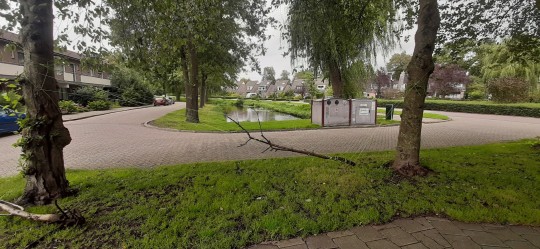
I love this artist, who, every few weeks, puts up a new string art piece. It's weird and I doubt the local government likes it. I'm friends with the artist's neighbor, and she says that they want to "decorate the town with art". That's a pretty punk statement that I definitely can get behind. It certainly is fun to see what the artist has come up with every time I walk past.
Mini libraries
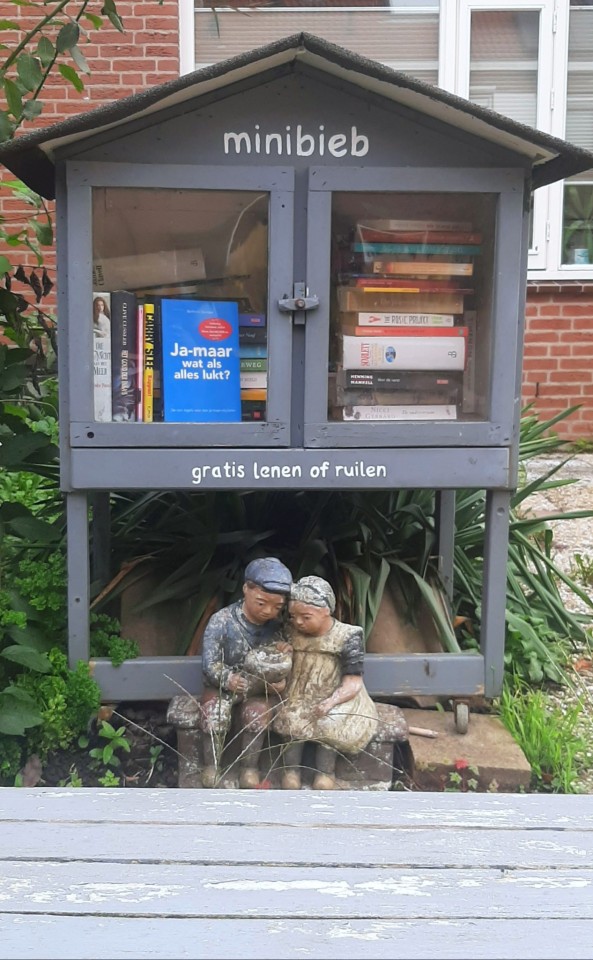
Mini libraries can be found in every neighborhood. People place them in their front yard. This one has a little bench with it too. I love it so much. Access to free books, all day, everyday, almost everywhere. Tell me that isn't such a solarpunk initiative. They've sprouted up the last decade like weeds and I couldn't be happier.
Give & take cabinet
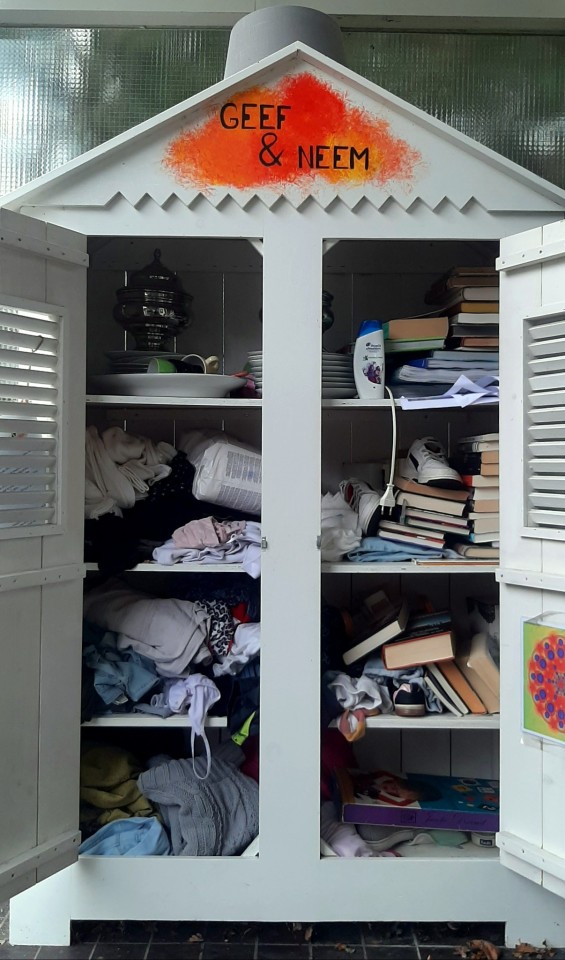
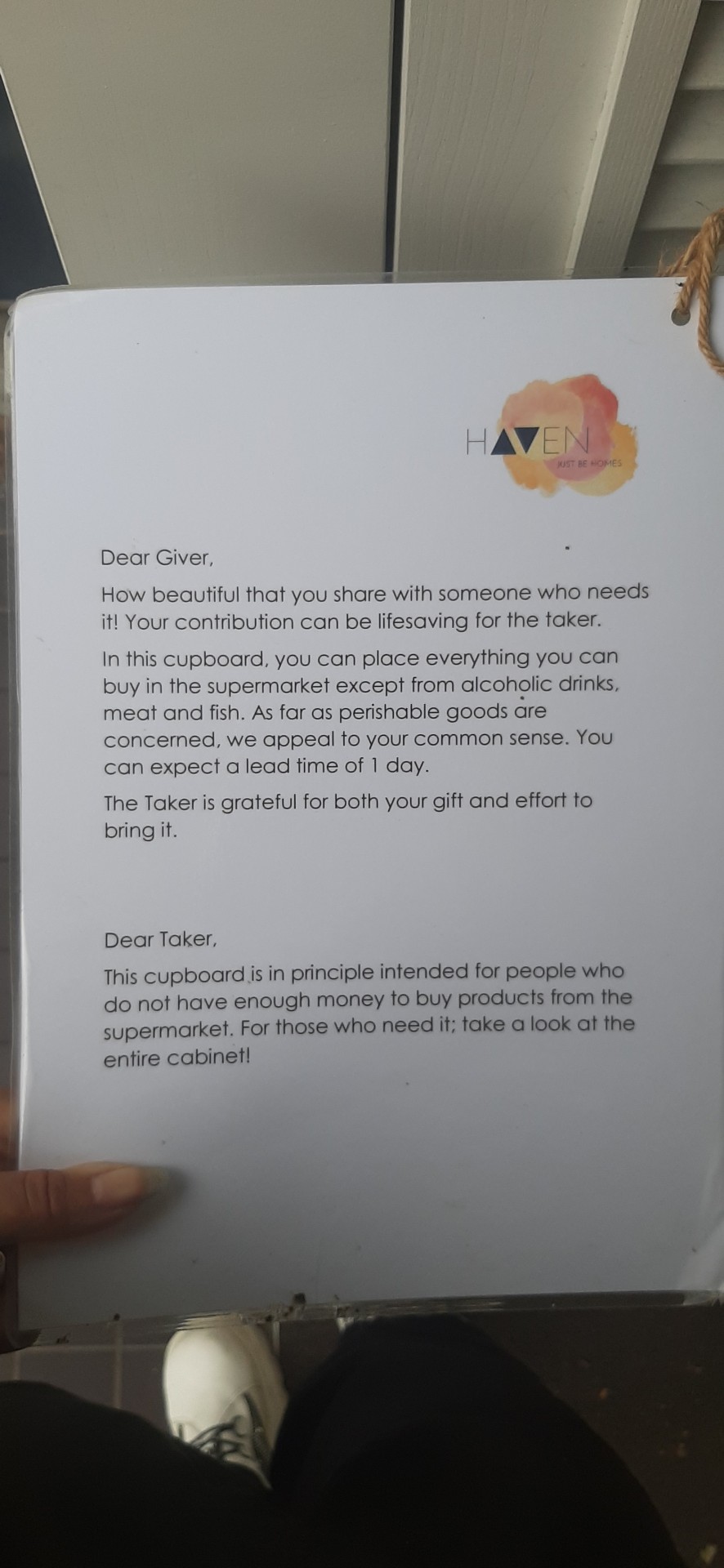
What's a better way to show your community you care about them than a give & take cabinet. Clothes, shoes dishes, menstrual items, shampoo and more. I'm planning on tidying up this cabinet soon and adding some stuff of my own. As someone who is pretty tight on money myself, I'm very happy to see a way I can get stuff I need if I'm in a pitch.
If you want you can give it a twist, you could consider making a tools library or a food cabinet as well.
Let's take care of each other and take care of our planet! We can build a kinder, better future if we tried. Love and Peace💚☮🌍
#art#community#solarpunk#solar punk#eco punk#ecofriendly#ecopunk#environmentalism#hopepunk#hope punk#anarchism#inner peace
1K notes
·
View notes
Text
If you are interested in a very practical, hands-on job that does a lot of good for a lot of people, no matter what age you are, whether you're looking for your first career or a new one, please consider becoming a city code official.
Code officials are the folks that work with governments to keep an eye on new and existing construction and make sure that it stays safe and accessible.
It's a good job making good money, and there are a number of places that you can get your certifications. It's also one of those practical Building Trades that always needs people, and if you're a little bit flexible about where you're going to work there are literally hundreds of job openings out there right now.
And from a long-term perspective, once you are a code official you can volunteer with / work with some of the national and International organizations that put together model codes. Model codes are books published by non-governmental organizations so that smaller cities and municipalities and really any government organization that doesn't have the budget to write its own building code from scratch can simply adopt a version of the model codes. The companies that put out model codes generally speaking have open processes that let anyone in the industry come in and help change the codes.
I work at one of those companies. We have trans activists coming in making sure that gendered bathrooms don't become law in a bunch of places. We have disability rights activists coming into push our codes past the what is required for the ADA, and into more modern, more complete accessibility rules. In both cases, these folks are minority and have to work with all the other code officials to show them why they're suggested changes are the right way to go. Anyone can submit changes and come in and speak, but if you are a professional code official currently working for a city or state that uses our codes, you get a vote on how we change things. Three to four hundred individuals vote on many of these suggested changes to the codes. That means the small number of determined people can likely genuinely move the needle in terms of what we discuss and what we implement.
It is construction, so not every work site is going to be welcoming, but I have been pleasantly surprised by how many folks in the industry are genuinely don't give a damn about anything but whether or not you can get the job done.
1K notes
·
View notes
Text
A petition was filed, Tuesday, in federal court in Canada to force Foreign Affairs Minister, Melanie Joly, to stop issuing export permits for military goods and technology sales to Israel, Anadolu Agency reports.
The suit, launched by Palestinian-Canadians and the Al-Haq Palestinian non-governmental organisation and the Canadian Lawyers for International Human Rights (CLAIHR), argues the sale violates Canadian and international law.
Canada’s Export and Import Permits Act states that the Foreign Minister must deny military goods and technology exports and permit applications if there is a substantial risk that would undermine peace and security.
“We are seeking to hold Canada to its own standards and to its international legal obligations,” CLAIHR board member, Henry Off, told Al Jazeera in a telephone interview.
Continue Reading
Tagging @politicsofcanada
#cdnpoli#canada#canadian politics#canadian news#palestine#arms trade#canada funds genocide#canada arms israel#canadian law#international law#war crimes
456 notes
·
View notes
Audio
The American Center for Continuing Professional Education offers affordable self-study CPE for Continuing Education for Accountants, CPAs, enrolled agents, tax preparers and students interested in furthering their education.
#Continuing Education for Accountants#American Center for Continuing Professional Education#Accounting CPE | American Center For Continuing Professional Education | ACCPE#ACCPE#Continuing Education for Accountants Texas#Ethics CPE courses Texas#Ohio Ethics Law E-Courses#Governmental CPE Courses Texas#Forensic CPE Texas#Fraud CPE Courses#Forensic Accounting Courses Texas#Forensic CPA (FCPA) Texas
0 notes